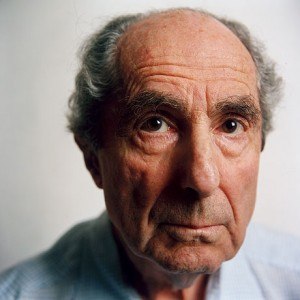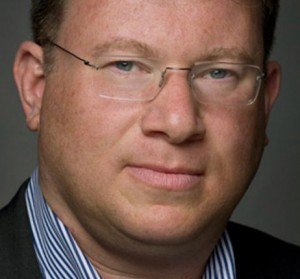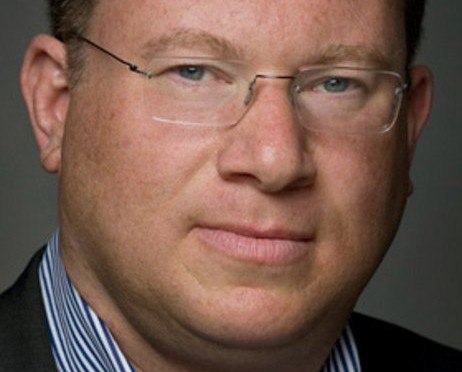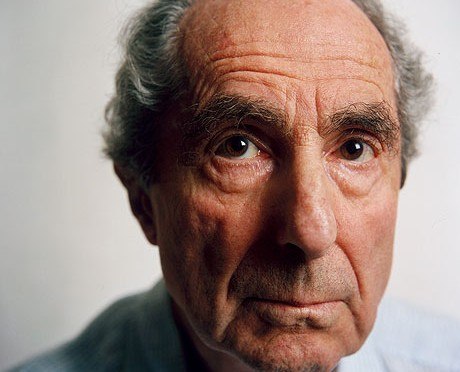 Two years ago I wrote about jewish influence on Christmas music. Sometime later I ran across a passage from Philip Roth’s Operation Shylock praising Irving Berlin for de-Christing Christmas (and Easter). What I didn’t realize until today was that Roth’s book frames jewish hostility toward Christmas in a much broader context of jewish hostility toward Christianity, Christians, and Whites in general.
Two years ago I wrote about jewish influence on Christmas music. Sometime later I ran across a passage from Philip Roth’s Operation Shylock praising Irving Berlin for de-Christing Christmas (and Easter). What I didn’t realize until today was that Roth’s book frames jewish hostility toward Christmas in a much broader context of jewish hostility toward Christianity, Christians, and Whites in general.
Roth, like Berlin, is not some marginal, inconsequential jew. Roth is considered “one of the most honored authors of his generation”:
His fiction, set frequently in Newark, New Jersey, is known for its intensely autobiographical character, for philosophically and formally blurring the distinction between reality and fiction, for its “supple, ingenious style,” and for its provocative explorations of Jewish and American identity.
Actually, it’s more accurate to describe Roth’s work and it’s fans as reflecting an all-consuming obsession with jewish identity. Roth is concerned about what it means to be a jew and how that contrasts with being Christian, American, or European. In Operation Shylock Roth weighs the differences between zionism and diasporism, two complementary jewish identities.
The portion excerpted here was not easy to find. In the end I transcribed it from Moshe Waldoks’ The Best American Humor 1994. Though Roth’s book is in Google Books, and precise searches will display snippets, I have not been able to find a link to freely viewable content.
Without further ado, here is Philip Roth, speaking through a character he named Philip Roth:
I heard myself next praising the greatest Diasporist of all, the father of the new Diasporist movement, Irving Berlin. “People ask where I got the idea. Well, I got it listening to the radio. The radio was playing ‘Easter Parade’ and I thought, But this is Jewish genius on a par with the Ten Commandments. God gave Moses the Ten Commandments and then He gave to Irving Berlin ‘Easter Parade’ and ‘White Christmas.’ The two holidays that celebrate the divinity of Christ—the divinity that’s the very heart of the Jewish rejection of Christianity—and what does Irving Berlin brilliantly do? He de-Christs them both! Easter he turns into a fashion show and Christmas into a holiday about snow. Gone is the gore and the murder of Christ—down with the crucifix and up with the bonnet! He turns their religion into schlock. But nicely! Nicely! So nicely the goyim don’t even know what hit ‘em. They love it. Everybody loves it. The Jews especially. Jews loathe Jesus. People always tell me Jesus is Jewish. I never believe them. It’s like when people used to tell me Cary Grant was Jewish. Bullshit. Jews don’t want to hear about Jesus. And can you blame them? So—Bing Crosby replaces Jesus as the beloved Son of God, and the Jews, the Jews, go around whistling about Easter! And is that so disgraceful a means of defusing the enmity of centuries? Is anyone really dishonored by this? If schlockified Christianity is Christianity cleansed of Jew hatred, then three cheers for schlock. If supplanting Jesus Christ with snow can enable my people to cozy up to Christmas, then let it snow, let it snow, let it snow. Do you see my point?” I took more pride, I told them, in “Easter Parade” then in the victory of the Six Day War, found more security in “White Christmas” than in the Israeli nuclear reactor. I told them that if the Israelis ever reached a point where they believed their survival depended not merely on breaking hands but on dropping a nuclear bomb, that would be the end of Judaism, even if the state of Israel should survive. “Jews as Jews will simply disappear. A generation after Jews use nuclear weapons to save themselves from their enemies, there will no longer be people to identify themselves as Jews. The Israelis will have saved their state by destroying their people. They will never survive morally after that; and if they don’t, why survive as Jews at all? They barely have the wherewithal to survive morally now. To put all these Jews in this tiny place, surrounded on all sides by tremendous hostility—how can you survive morally? Better to be marginal neurotics, anxious assimilationists, and everything else that the Zionists despise, better to lose the state than to lose your moral being by unleashing a nuclear war. Better Irving Berlin than the Wailing Wall. Better Irving Berlin than Holy Jerusalem! What does owning Jerusalem, of all places, have to do with being Jews in 1988? Jerusalem is by now the worst thing that could possibly have happened to us. Last year in Jerusalem! Next year in Warsaw! Next year in Bucharest! Next year in Vilna and Cracow! Look, I know people call Diasporism a revolutionary idea, but it’s not a revolution that I’m proposing, it’s a retroversion, a turning back, the very thing Zionism itself once was. You go back to the crossing point and cross back the other way. Zionism went back too far, that’s what went wrong with Zionism. Zionism went back to the crossing point of the dispersion—Diasporism goes back to the crossing point of Zionism.”
Roth’s argument isn’t complicated. First, he takes as a given that jews are a group, his group, distinct from everyone else. Second, he’s advocating in favor of that group’s best interests, regardless of what it means for anyone else. Roth subtitled his book A Confession. It is a jewish confession though, which means it’s more of an arrogant celebration of jewish victimology and supremacy than an expression of humility or contrition. Roth revels in his enmity toward “the goyim” even as he projects his hate into their minds. That the Other are so clueless, even about their supposed hatred for jews, serves as just another excuse for jews to hate them.
Talking directly to his own people, Roth first reminds them how easily and completely the goyim can and have been manipulated by jews. Then he shames them with the notion that jewish nationalism isn’t good enough for the jews. Why constrain yourself to live in one small country when you can thrive everywhere by manipulating the goyim? Then, finally, as a sort of trump card, Roth invokes morality. As with confession, morality means something different to jews than Christians. Christian morality is universalist – it refers to principles that apply equally to everyone, even their enemies. Jewish morality is particularist – “Is it good for the jews?” Working with this definition of morality Roth doesn’t see anything wrong with jews manipulating the goyim to further jewish interests. If it’s good for the jews then it’s good. When Roth describes zionist jews nuking their enemies as immoral, it’s not because of the harm it might cause those enemies. It’s because he thinks it would cause “the end of Judaism”, which to him means “there will no longer be people to identify themselves as Jews”.
Scrolling back to the top of the page in the book where the quote above begins we find Roth elaborating on who the enemy is, and what he wants from them:
… call on Europe to purge itself of a thousand years of anti-Semitism and to make room in its midst for a vital Jewish presence to multiply and flourish there and, in anticipation of the third millenium of Christianity, to declare by proclamation in all its parliaments the right of the Jewish uprooted to resettle in their European homeland and to live as Jews there, free, secure, and welcome. But I have my doubts.
This is the jewish version of history, together with the jewish solution to their European problem. Roth makes it plain enough, and not nicely at all, that Europeans must be subordinated to jews so that jews can multiply and flourish. Roth wants Europeans (by which he means Whites everywhere) to admit collective guilt and abandon any collective identity or interests of our own. Meanwhile jews enjoy the opposite.
Roth is sometimes absurdly described as a “self-hating jew” because he clearly favors diasporism over zionism, rather than both. This “self-hating jew” bit also serves as a kind of cover – shoo away now goyim, this is private jew business being discussed here. The fact is that he’s simply one particularly prominent example of the typical White-blaming, White-hating what’s-good-for-the-jews jew. The less the goyim know about that the better for the jews.
 The belief that zionism is somehow bad for the jews is not uncommon on the “liberal” side of the political spectrum – which is to say amongst the majority of jews outside Israel. Philip Weiss expressed a similar belief earlier this month in Israel isn’t good for the Jews. Weiss, aiming non-fiction at a (slightly) more mixed audience than Roth, writes:
The belief that zionism is somehow bad for the jews is not uncommon on the “liberal” side of the political spectrum – which is to say amongst the majority of jews outside Israel. Philip Weiss expressed a similar belief earlier this month in Israel isn’t good for the Jews. Weiss, aiming non-fiction at a (slightly) more mixed audience than Roth, writes:
A feeling has taken root deep in the American Jewish community that Israel is hurting us, hurting our standing in the world and our future. The restrictions on democracy, the curbs on women, the intransigence vis-a-vis the Palestinians when Obama has demanded movement, the indifference to the Arab Spring– Israel is a society we no longer recognize as Jewish like we’re Jewish, and worst of all, its militarism is exposing American Jews to the accusation that we are dually loyal. And we don’t like that: We’re Americans.
The straw that broke the camel’s back was clearly the oafish ad campaign that targeted Christmas and intermarriage– the ad campaign that Netanyahu cancelled. Even rightwing Israel lobbyists were stunned by how clueless the ad campaign was. But it was an expression of genuine Israeli attitudes. And that is what’s so scary: American Jews are waking up to the fact that Israeli society is nothing like ours. Hillary Clinton could only launch her criticism of religious restrictions on women in Israel because she knows that American Jews feel this way. Ambassador Howard Gutman was speaking for many sensible American Jews when he said that Israeli policies are hurting Jews by fostering anti-Semitism.
We are integrators. We live in America because we want to be Jews in a diverse society. That is the spirit of American Jewish life by and large. And now these Zionists–separatists whom we never completely trusted when we were arguing with them in Eastern Europe–are quietly understood to have hijacked Jewishness and taken it to a dark ugly place.
In conclusion Weiss writes:
Because more and more of us who care about Jewish life, as an integral part of western society, need to separate ourselves from an ethos of separation.
It’s refreshing to hear a jew admit that powerful non-jews like Hillary Clinton are actually beholden to jewish will – able to do what they do only so long as jews approve. Howard Gutman is also only nominally a representative of American interests. What Gutman said was delivered at a conference of organized jewry that deserves a detailed examination and critique of its own. Suffice it here to say that Gutman drew a distinction between Whites and muslims vis-a-vis jews. Whites, he said, simply hate others, like jews, largely for the sake of hating, whereas muslims at least hate jews for somewhat more sensible reasons, namely jews in Israel acting like Whites. This was controversial to jews and non-jews seeking to serve them. They complained Gutman wasn’t being fair to the jews.
Weiss, like Gutman, describes concerns that are clearly pinned to what he thinks best serves the interests of jews, or at least jews who live in the US. Not Americans. Not Palestinians. That’s what the word integration means to him. He’s so eager to defend his jews from exposure to (valid) accusations and yet so intellectually bankrupt that all he can do is spew blatant contradictions. We’re jews AND we’re Americans! That’s NOT dual loyalty! We’re integrators AND we continue separately as jews! We’re not at all like those DARK, UGLY separatists over there! Oh, and by the way, THEY’RE NOT JEWS!
The bottom line is that Weiss, like Roth, thinks jewish interests are best served within subservient Western societies. Whereas Roth sees the jews in diaspora as living among hostile aliens and writes more or less frankly about defusing Christians, Weiss is more interested in playing the anti-“racist” liberal, defusing separatists and nationalists. Like Roth, Weiss seems confident that jews can and will continue to thrive, at least in diaspora. The problem, as Roth sees it, is that zionism is immoral. Weiss claims the problem is that “oafish” “clueless” zionists are making a mockery of his (jewish) moralizing.
Weiss says he’s scared that jews are waking up and they’re upset that zionists have “hijacked Jewishness and taken it to a dark ugly place”. I couldn’t care less, but I think what scares jews more, zionist and diasporist alike, is the fear that Whites will see through their double-talk. That enough of us will wake up and be upset to realize that jews, as a group, are only worried about the interests of jews. That we’ll understand that they have always seen us as the Other, the enemy, regardless of how we regard them. That we’ll see how diaspora jews, through calculated, coordinated, collective effort, have hijacked Western societies and taken us to a dark ugly place, turning our homelands into amusement parks in the interests of “minorities”, first and foremost themselves. That we’ll put together the various pieces of truth, left and right, and see how militarism (and corporatism and globalism) really figures into all this. How the lives and vitality of our people have been squandered stomping around, on ourselves as well as others, to keep the world safe for jews, diasporists AND zionists, while they take turns demonizing and exploiting us.
[The Philip Weiss image comes from Gilad Atzmon’s Jews & Their Self Interest-An Interview with Philip Weiss.]
 Jeffrey Goldberg writes in Is the Term ‘Israel-Firster’ Anti-Semitic?, at The Atlantic, on 19 Jan 2012:
Jeffrey Goldberg writes in Is the Term ‘Israel-Firster’ Anti-Semitic?, at The Atlantic, on 19 Jan 2012:







